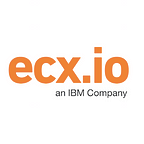Digital Agencies in Transition
Mergers and sales currently characterise the agency industry — and digital agencies in particular are high on the shopping list. What makes them so attractive and how should digital agencies position themselves in order to secure their future and share in the growth?
User-centred thinking, long since a premise of the digital industry, has blossomed into a universal paradigm for the development of services and products. The range of service providers and consultants going into digital services and the consulting business around the ominous “Digital Transformation” is growing ever larger — from technical implementers through to advertising agencies. In this context, the issue of user experience is becoming increasingly important. Accordingly, the competition is growing for digital agencies who are increasingly competing with classical creative agencies as well as consulting service providers. This raises the question: If advertising agencies and management consultancies profess digital competence, why do I need a digital agency? The answer: In order to obtain consistency.
Everyone has probably played Chinese whispers: You whisper something in your neighbour’s ear and it is passed on, and at the end of the round what is left of your initial statement is spoken aloud. Usually not very much. We experience something similar with digital projects that have been implemented by large creative agencies or consulting firms. At best there was a creative, strategic idea for digital media — but by the time it has arrived at the sub-contracted developers in India, let alone been implemented, there is not much left of it. As a rule, the success criteria are hardly ever discussed at the outset — and they are often forgotten before the development even starts. To clarify: The triad of consulting, creation and technical implementation is the basis for successful (digital) projects and communication. A triad which neither classical advertising agencies nor large consulting service providers can cover.
Technology and implementation expertise
Technological expertise combined with creativity is probably the greatest market advantage of digital agencies and has in recent years become the central differentiator. It can often take years to establish this combination and get experienced developers working together with an imaginative creative team on a project based on a strategic direction. This process cannot be bought. Digital agencies, who are working from a digital viewpoint and under given constraints together with strong technology partners at the highest possible level of certification, can implement projects without friction losses and thereby rely on their experienced employees who are always up to date with their training.
Classical advertising agencies lack this broad technical expertise. A detour via external partners who transform creative ideas into technical solutions costs valuable time — and often at the expense of the idea. This is of particular significance to projects in the digital domain with its characteristic optimisation cycles under agile processes. Providers without their own implementation expertise are simply not suitable for large projects where the creative and technical teams need to work together and learn through the process. Also, consulting companies who see their strength in strategic consulting, not in creation or technical implementation, must enter into appropriate co-operation or buy the necessary know-how. There is a compromise which is usually expensive and rarely sustainable in terms of content.
User focus and agile processes
Digital agencies have internalised user focus as a principle of digital communication. Primarily this is not about what a company would like to sell or communicate but to answer the initial questions in consulting and conception, which would be: What added value can the provider create for the user? What does the brand offer the user, why should he interact and even divulge information? Ultimately success is measured by this, and also by the degree of interaction, commitment and customer satisfaction, not by possible awards at industry events or the utilisation rate of the consultant. User acceptance as a measured value can be measured in real time, enables the continuous optimisation of existing solutions and also triggers the application of agile methods through their use in software development. Digital agencies also have a home advantage here because methods such as Scrum, Kanban and Design Thinking are among their very own tools.
In addition to creative excellence, the technological partnerships that many agencies have developed over the years have also proven to be drivers of growth. Be it Adobe, Sitecore or SAP Hybris — the creative use of a stable technology base is a real showcase for all sides. Last but not least the high growth of the technology provider, placed at between 40 and 60 percent per year, is due to the improved utilisation of participating digital agencies as implementation partners.
To rely on the implementation business alone is however too short-sighted. It is about “understanding the core business of a potential customer and entering into a dialogue with him” according to Gerald Lanzerits, CEO at ecx.io. Only on the basis of this dialogue can a strategic, creative and technological consultation take place. With their technological core competence and creative excellence, digital agencies can offer their customers the entire digital spectrum from a single source and without friction losses. And that is something that is only the preserve of digital agencies.
Author: Daniel Marx, Creative Director UX
